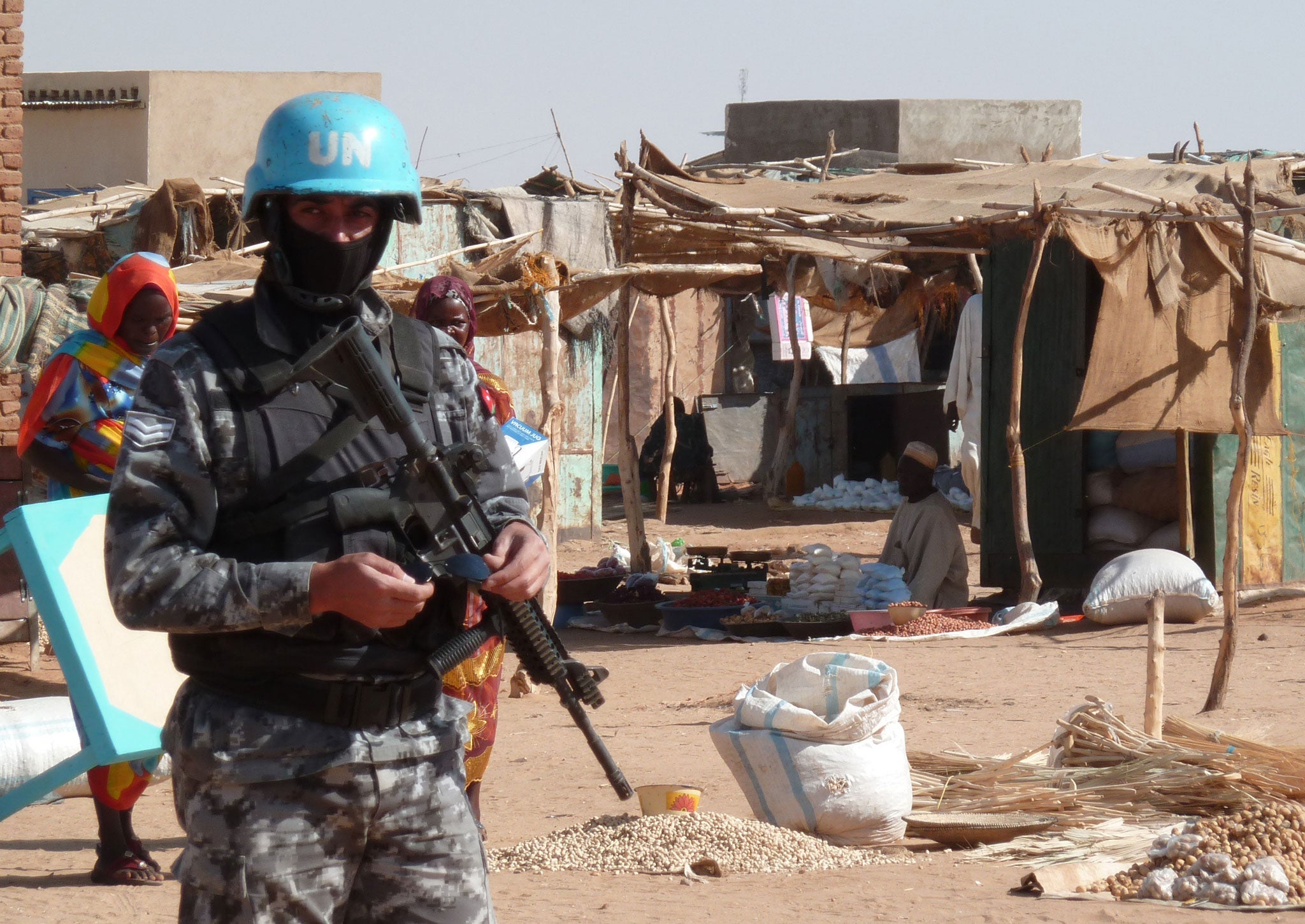Should we call time on the UN's peacekeeping mission in Darfur?
It is a plaster that cannot heal the region's perpetual turmoil

At the beginning of the month, the UN’s peacekeeping mission in Sudan was given another year to try and bring stability to the war torn region of Darfur. Established in 2008, it costs $1.4 billion dollars a year – making it the world’s most expensive peacekeeping mission. But is UNAMID worth it? As someone who escaped the fighting in Darfur, and who has family struggling to survive there, I have my doubts.
Despite the presence of the peacekeeping force, Khartoum persists in its oppression of the region, with organisations like Waging Peace continuing to draw international attention to these human rights abuses. Darfuris enduring the relentless violence in the region see little benefit from the force, with Sudanese government forces continuing to attack civilians with impunity. Many of my kin think a better focus for the UN would be to find a political solution which addresses the underlying cause of violence, rather than an ineffectual force that salves the conscience of the international community whilst providing no escape for civilians from Khartoum’s reign of terror. After all, a peacekeeping force cannot do its job properly when there is no peace to keep.
The UN was slow to respond to the mass atrocities in Sudan. Khartoum and its local Janjaweed proxies killed 300,000 unarmed civilians by the time the Security Council sent in peacekeepers. When it was finally approved in 2007, 4 years after fighting had broken out, UNAMID was given a Chapter VII mandate under the UN Charter, authorising it to protect those “under imminent threat of physical violence and to prevent attacks against civilians.” However, our families back in Darfur tell us of UNAMID soldiers turning their backs on civilians as they are attacked, ensuring they are nowhere near trouble. No wonder so many in Darfur are convinced UNAMID is on the side of the Khartoum regime.
Peacekeeping forces will often not leave their barracks to investigate incidents; or their officers check with their countries of origin, rather than obeying their commanders in Darfur. According to testimony from people in camps across Darfur, there are many areas where UNAMID has given up even patrolling. They claim they lack the necessary vehicles, despite their massive annual budget.
A community leader in Kassab camp in North Darfur says, “The UNAMID patrols stopped six months ago. The mission no longer plays any role in protecting displaced persons. All they do is write reports.” Unprotected, unarmed and vulnerable, the people in the camps are terrified. “If an incident occurs, UNAMID comes three days later to find out what happened,” complained another refugee spokesman at camp Fatta Borno.
UNAMID often cannot even protect its own forces – who are seen as a soft target. The Khartoum Government have launched a number of attacks on the peacekeeping force. In October last year, Sudanese Armed Forces conducted aerial strikes on UNAMID vehicles going to investigate the reported killing of 300 civilians. Just this month seven peacekeepers were tragically killed in an ambush on a UNAMID patrol. If they can’t protect themselves, how can they protect others?
UNAMID’s role is not made easier by Khartoum’s consistent efforts to sabotage it. Access is constantly denied and it has been known for troops to be restricted to their camps by Sudanese soldiers whilst atrocities take place. Despite this, the UN is reluctant to apportion blame when the Sudan regime and its proxies attack civilians, preferring diplomatic language or moral equivalency. Last year its reporting even suggested that the security situation was ‘relatively calm’. Each time the UN fails to hold Khartoum to its commitments under both international and national laws and peace deals, it appeases the regime and signals its weakness. This may change under the new leadership of Mohammed Ibn Chambas who promises the mission is committed to fully implementing its mission. So far though, our families are yet to see the benefit with civilians being killed on a regular basis.
This year UNAMID must fulfil its obligations to protect civilians or the international community should accept that it has merely provided a sticking plaster to a situation that requires a major operation. And in so doing, it is causing more harm than good. The situation in Darfur requires a concerted diplomatic effort to call Khartoum’s bluff. Appeasing the regime in the hope its behaviour will improve has had the opposite effect.

Join our commenting forum
Join thought-provoking conversations, follow other Independent readers and see their replies